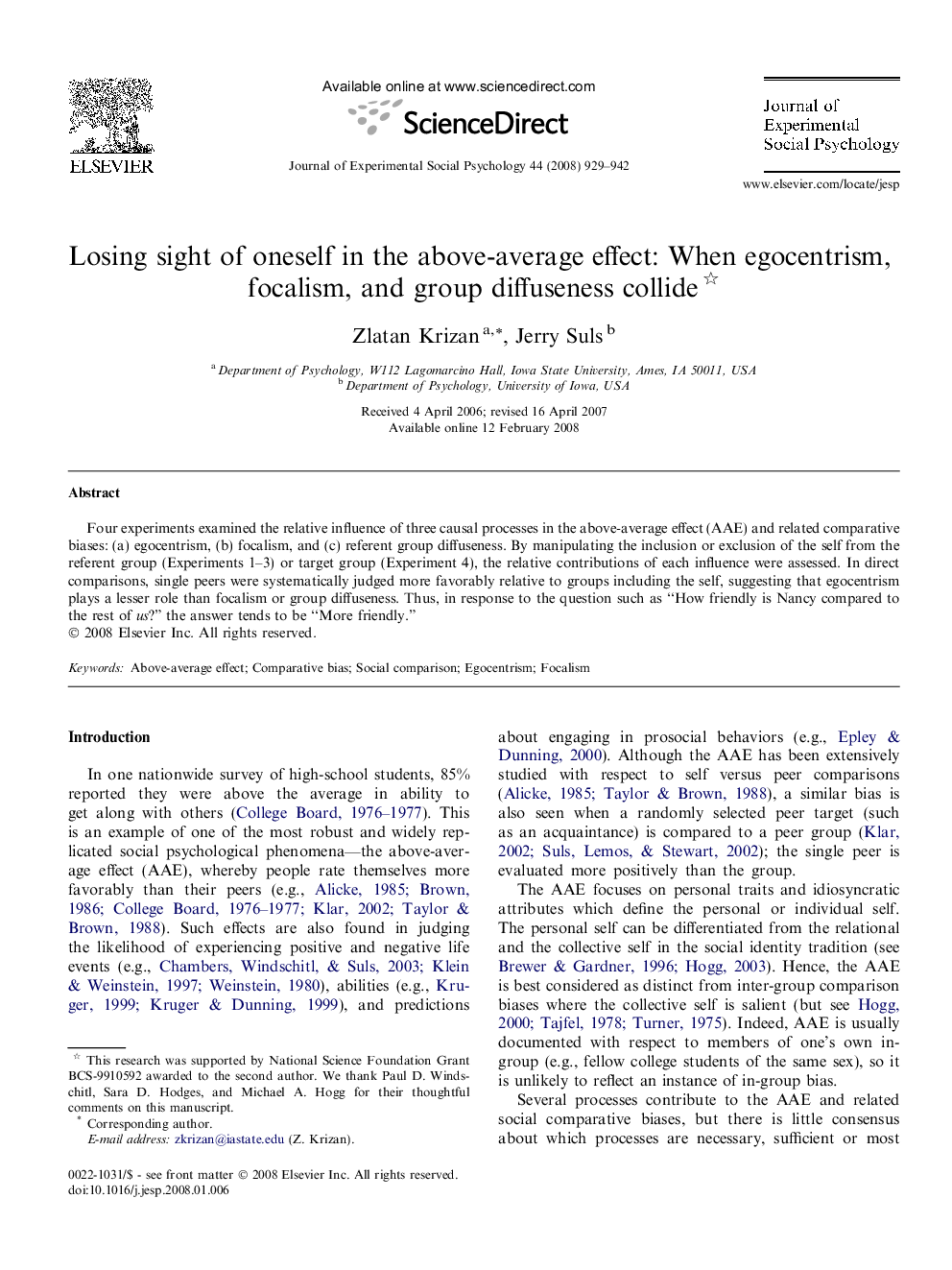| Article ID | Journal | Published Year | Pages | File Type |
|---|---|---|---|---|
| 10468608 | Journal of Experimental Social Psychology | 2008 | 14 Pages |
Abstract
Four experiments examined the relative influence of three causal processes in the above-average effect (AAE) and related comparative biases: (a) egocentrism, (b) focalism, and (c) referent group diffuseness. By manipulating the inclusion or exclusion of the self from the referent group (Experiments 1-3) or target group (Experiment 4), the relative contributions of each influence were assessed. In direct comparisons, single peers were systematically judged more favorably relative to groups including the self, suggesting that egocentrism plays a lesser role than focalism or group diffuseness. Thus, in response to the question such as “How friendly is Nancy compared to the rest of us?” the answer tends to be “More friendly.”
Keywords
Related Topics
Life Sciences
Neuroscience
Behavioral Neuroscience
Authors
Zlatan Krizan, Jerry Suls,
